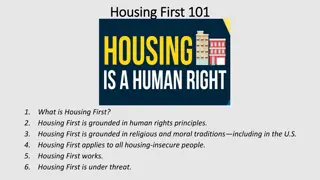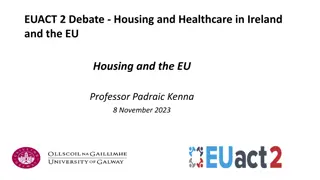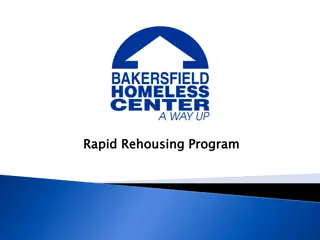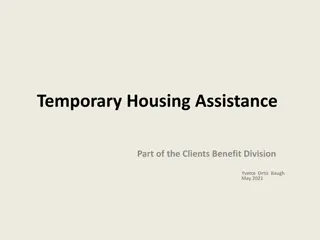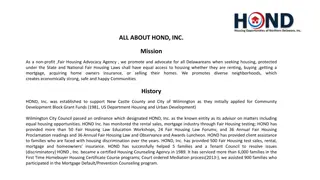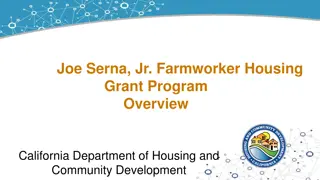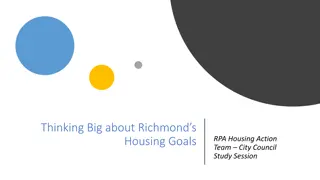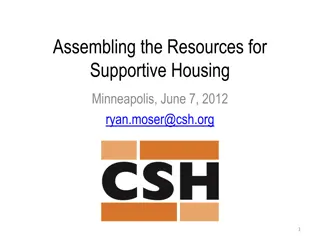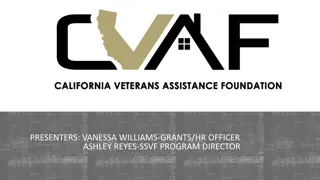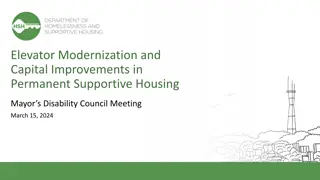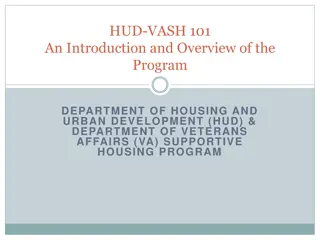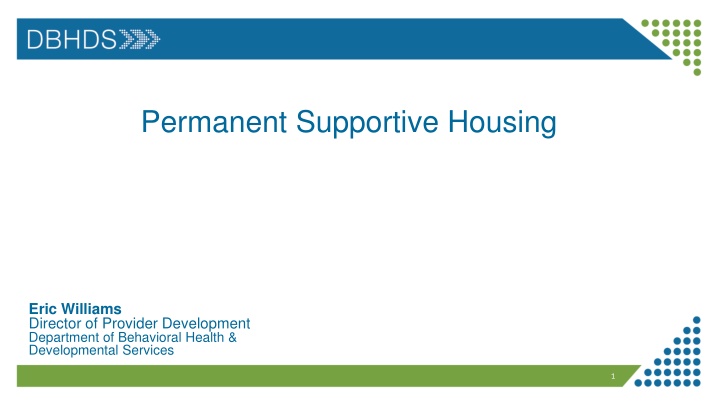
Enhancing Supportive Housing Programs for Community Integration
Explore the success of Permanent Supportive Housing (PSH) initiatives led by Eric Williams at the Department of Behavioral Health & Developmental Services. Learn about the outcomes, funding allocations, and projects aimed at improving housing access at discharge and community integration. Discover how these efforts are reshaping support services for individuals with diverse needs.
Download Presentation

Please find below an Image/Link to download the presentation.
The content on the website is provided AS IS for your information and personal use only. It may not be sold, licensed, or shared on other websites without obtaining consent from the author. If you encounter any issues during the download, it is possible that the publisher has removed the file from their server.
You are allowed to download the files provided on this website for personal or commercial use, subject to the condition that they are used lawfully. All files are the property of their respective owners.
The content on the website is provided AS IS for your information and personal use only. It may not be sold, licensed, or shared on other websites without obtaining consent from the author.
E N D
Presentation Transcript
Permanent Supportive Housing Eric Williams Director of Provider Development Department of Behavioral Health & Developmental Services 1
DBHDS Supportive Housing Overview Permanent Supportive Housing (PSH) Outcomes State Hospital Bed Day Cost Avoidance One Year Post PSH Move-In (n=1,449) of PSH participants remain housed for at least one year of PSH participants had a state hospitalization in their lifetime had a state hospitalization in the year before PSH move-in individuals were discharged from a state hospital directly to PSH fewer state hospital bed days are used by participants after one year of PSH 92% 48% 76% 20% 293 76% 42 is average length of stay months 2
DBHDS Supportive Housing Overview Permanent Supportive Housing (PSH-SMI) FY 2025 Funding - $86.1M 36% of state funds are spent on direct services; 57% on rental assistance; 7% on one-time client assistance (security deposits, furnishings, etc.) More than 3,000 PSH slots Operated by 26 CSBs and 1 non-profit State Rental Assistance Program (SRAP) FY 2025 Funding - $17.2M DD/Settlement Agreement population 881 SRAP slots Managed by 23 contractors 3
Improving Access to Housing at Discharge Catawba/Blue Ridge Behavioral Health PSH Pilot (2020) Added PSH slots and Peer Bridger position Reviewed discharge process and roles and responsibilities of hospital and CSB staff Results: Increase in number of individuals enrolled in BRBH PSH form Catawba Possibilities Project (2022-23) DBHDS examined needs of individuals with DD in state psychiatric hospitals to improve linkages to integrated housing Results: common discharge barriers identified; recommended use of common screening tool Supporting Community Integration Initiative (2022 present) Improve understanding of integration obligations and best practices to increase discharges to PSH Steering committee comprised of OCH, Facility, and CSB staff Developed training modules on community integration for hospital and CSB staff Mt. Rogers and SWVMHI are working with Advocates for Human Potential (AHP) to improve coordination and increase discharges Results: PSH referrals have already increased and new coordination strategies are implemented 4

